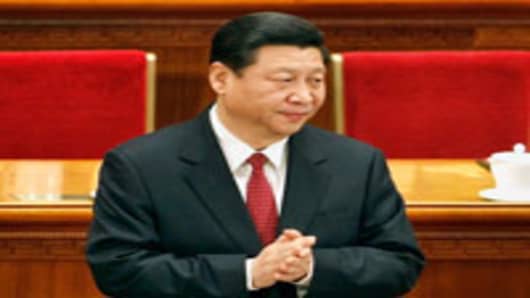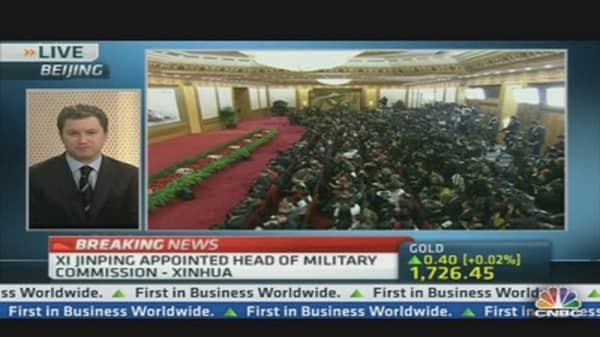At first glance, China's new set of leaders look like a conservative lot, but country watchers warn not to go simply by the past credentials of these seven decision-makers as they are likely to push ahead with market-friendly reforms crucial to the future of the world's second largest economy.
China on Thursday unveiled the members of its top decision-making body, the Politburo Standing Committee. Xi Jinpingand Li Keqiang, as expected, were appointed chief and deputy of China's ruling Communist Party and will takeover in March as the country's president and premier, respectively.
The other five newly-elected members are - current vice premier Wang Qishan, North Korea-trained economist Zhang Dejiang, Tianjin party chief Zhang Gaoli, Liu Yunshan, a conservative who is said to have kept domestic media in control and Shanghai party boss Yu Zhengsheng.
(Read more: New Leaders—the Lineup)
Two leaders with reform credentials Wang Yang, the party head of China's manufacturing hub, Guangdong and party organization head Li Yuanchao did not make the cut.
While the omission of Wang and Li came as a surprise, China watchers said they were optimistic the new leadership will place both economic and political reforms high on their agenda.
"The transition of power offers the new leaders an historic opportunity to quickly implement a decade of stalled reforms. We are confident that the new leaders will take bold moves because they know that the required reforms are not only necessary, but now also urgent," Davide Cucino, president of the European Union Chamber of Commerce in China, told Reuters.
One clue in that direction is the cutting of size of the Standing Committee to 7 from the earlier 9 members, which experts said would lead to more cohesive decision making and allow for policy changes to be implemented faster.
In Complete Control
Also the outgoing President Hu Jintao will no longer stay as the head of the party's Central Military Commission, like his predecessor Jiang Zemin who held that post for the first two years of Hu's tenure. This indicates a complete transfer of power to Xi who will also head the top military body.
"This means that Hu Jintao won't be looking over Xi Jinping's shoulders, he has totally retired. Hu's intention behind this is, if he totally retires, all the other retired people will not interfere. That's very important," said Frank Ching, associate professor at Hong Kong University of Science and Technology.
Wang Gungwu, Chairman of the East Asian Institute at the National University of Singapore, said despite their conservative tilt, the new leadership will be forced to respond to the growing calls for reform within the country.
"They don't have much choice, they have to reform. I think they're actually aware of it, that the people are tired of a lot of the clichés that are being uttered so far. They want to see some action," Wang said.
James Gruber, author of the "Asia Confidential" stock market newsletter, agreed, saying that, "Xi Jinping understands not to reform is to endanger the party."
He said it is highly unlikely the "status quo" will remain, adding that the government will roll out fresh fiscal stimulus measures to support the economy after March 2013, when the leadership transition is completed.
Fighting Corruption
Tackling corruption will also be top priority, said analysts, pointing to the appointment of Wang Qishan, who has been nicknamed the "chief of the fire brigade" as he is known for efficiently handling crisis. He will be the secretary of the Central Commission for Discipline Inspection.
"It signals the party is a little more serious about taking on corruption, which has corroded their legitimacy," said William McCahill, China managing director of Religare Capital Markets.
(Read more: Wen Expose: Storm in Teacup?)
And in his first speech to the media on Thursday, Xi also identified corruption as the major challenge facing the nation.
China watchers lauded Xi's debut speech saying he displayed both confidence and enthusiasm towards his new role.
"He was not like Hu Jintao, who had no facial expressions. He appears confident, I think it means that he is looking forward to being in charge of the country," Ching from Hong Kong University of Science and Technology said.





